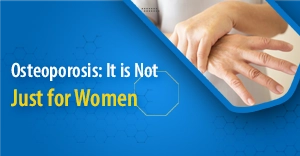Comprehensive Arthritis Treatment at Medica
Arthritis is a phrase that refers to a collection of diseases that affect the joints and muscles of the body. Joint pain, inflammation, and limited joint movement are some of the symptoms. Arthritis affects the majority of persons over the age of 50. Arthritis can be confirmed with blood testing and X-rays. Medication, exercise, rest, weight control, nutrition, and, in certain circumstances, surgery can all be used to treat the problem.
Medica’s Orthopaedic Team is experienced in superspecialty orthopedics, besides routine trauma management. With an experience of thousands of joint-replacement and minimally-invasive procedures, the team offers an amalgamation of skill, dedication and world-class services at an affordable cost. We provide our patients with all-round care and treatment ensuring complete recovery from their bone ailments and quick return to normalcy.
Free Doctor Assessment
What are the Reasons for Joint Pain?
The most prevalent cause of joint pain is arthritis. Wrists, hands, hips, and knees are the most commonly affected areas. Osteoarthritis and rheumatoid arthritis are the two most common types. The former is more popular among the elderly. Women are more likely than men to be affected by rheumatoid arthritis, which can be devastating. It causes inflammation and a build-up of fluid in the joints, resulting in excruciating agony.
Symptoms of Arthritis
The joints are the most prevalent indications and symptoms of arthritis. Signs and symptoms of arthritis vary depending on the type:
- Pain
- Stiffness
- Swelling
- Redness
- Decreased Mobility
What is Osteoarthritis and How Does It Affect You?
Joint deterioration causes osteoarthritis. A protective tissue called cartilage covers the joints. Cartilage aids in maintaining the fluidity of joint movement. When the cartilage in the joint breaks down, the bones that make up the joint rub against each other, causing stiffness and pain. Osteoarthritis is also known as degenerative disease since it mainly affects older people as a result of normal wear and tear. It’s a problem that can affect every joint in the body. Hands, fingertips, knees, hips, and spine are the most usually affected locations.
What is Rheumatoid Arthritis?
Rheumatoid arthritis is a type of autoimmune disorder. It is a type of inflammatory arthritis. When the immune system misidentifies the soft lining around joints as a threat and attacks it, fluid builds up in the joints, causing stiffness and pain. It’s a long-term inflammatory disorder that affects more than just your joints. It has the potential to cause problems with the skin, eyes, lungs, heart, and blood vessels.
Other types of Inflammatory Arthritis include:
Psoriatic Arthritis, the clues to which include scaly spots on the skin along with swelling in some or all the joints. The condition may also be identified with back stiffness, and at times, swelling of fingers or toe, resulting in a sausage-like appearance.
Gout and Pseudogout, in which needle-like crystals of uric acid or rhomboid-shaped crystals of calcium pyrophosphate, respectively, form in cartilage and are released into the joint fluid, producing painful effects. Gout is most common in the metatarsophalangeal joint or the first toe, where it meets the foot but may also be common in other joints, such as the midfoot, ankles, knees, and bursa of the elbow. Pseudogout is more common in the elders and generally involves the ankles, wrists, knees, and shoulders.
Ankylosing Spondylitis (AS) and related conditions affect the spine and peripheral joints. These conditions can be identified with severe morning stiffness in the spine.
Parvovirus Arthritis is a contagious, viral form of arthritis that may cause flu-like symptoms and rashes. Children suffering from the fifth disease (Erythema infectiosum) due to parvovirus will have a classic slapped-cheek appearance of rashes. Although parvovirus arthritis resolves within a few weeks, some patients may keep experiencing ongoing symptoms.
Lyme Disease is caused by a spirochete (bacteria) contracted via the bite of an infected deer tick. The condition typically reveals IA symptoms in later stages but in some cases may include early symptoms such as rashes, chills, fever, fatigue, headache, and an aching neck. Although blood testing is useful once arthritis develops, it may be falsely negative if tested fairly early in Lyme disease.
Systemic Lupus Erythematosus (SLE) or lupus is an inflammatory condition that usually involves all systems of the human body. Arthritis is one of the single most common ways for lupus to present, and lupus arthritis appears similar to the early stages of rheumatoid arthritis. Some of the common signs of lupus include sun-sensitive skin rashes, mouth sores, rapid hair loss, chest pain with a deep breath, and a positive ANA blood test.
Risk Factors of Arthritis
A person can suffer from arthritis due the following factors:
- Old Age
- Obesity
- Genetics
- Previous History of Bone Injury
- Bone Infection
- Autoimmune Issues
Diagnosis
There are now over 100 different forms of arthritis and related diseases, and the number is growing. A doctor would normally inquire about the patient’s symptoms, including what makes them worse and, if anything, what makes them better. They also inquire about the individual’s various medical issues and the medications they are taking. A doctor is likely to suggest a series of tests in order to learn more about a patient’s health and determine which joints are impacted. The following are some examples of autoimmune arthritis diagnostic tests:
- CT scans, x-rays, and MRIs are examples of imaging studies that can assist identify regions of joint deterioration.
- Rheumatoid factor, red blood cell count, antibodies to specific peptide types, and erythrocyte sedimentation rates are all tested in the blood.
- Tissue samples are often utilized to confirm the presence of diseases such as psoriasis.
There is no single test that can diagnose an autoimmune arthritis type with certainty. Often, a patient’s diagnosis entails a battery of tests to rule out the presence of other diseases or types of arthritis.

Minimally Invasive
Surgery

World Renowned
Experts
EMI Facility
Available

Covid Safe
Environment
Treatment
Medication, physiotherapy, and, in certain cases, surgery are used to alleviate symptoms and enhance quality of life.
- Surgery: Knee replacement, hip replacement, and joint replacement are all options.
- Medications: Steroid, analgesic, narcotic, and immunosuppressive drugs are all examples of nonsteroidal anti-inflammatory drugs.
- Therapy: Hydrotherapy, stretching, massage, and acupuncture are some of the treatments available.
- Self-Care: Weight-loss, yoga, physical activity, etc can help improve your medical condition.









